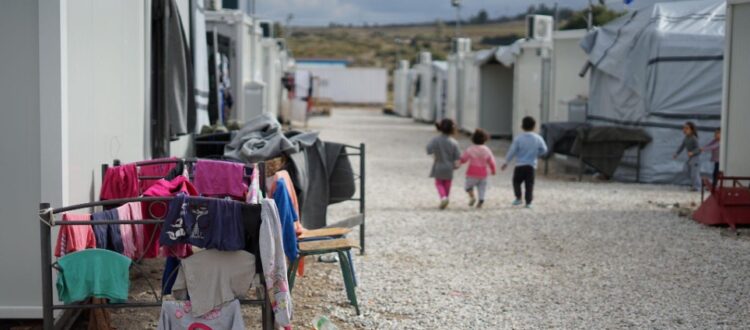LEGAL PROTECTION IS NEEDED FOR THOSE WHO MIGRATE DUE TO CLIMATE CHANGE: THE APPEAL OF UNITED NATIONS SPECIAL RAPPORTEUR IAN FRY
We have already discussed climate-induced migration (here’s the link to our article), noting that, to date, there is no specific legal protection for climate refugees, especially when they cross the borders of other states.
The 1951 Refugee Convention, in fact, only recognizes refugee status for those who cross the border due to “a well-founded fear of persecution for reasons of race, religion, nationality, membership of a particular social group, or political opinion” – Art. 1(A)2 -. Clearly, the effects of climate change do not fall within this definition.
However, climate change is increasingly pushing people to migrate to other countries in search of better environmental conditions, making it increasingly urgent to provide effective and prompt responses to address this issue.
It is in this context that the thematic report just released by the United Nations Special Rapporteur on the promotion and protection of human rights in the context of climate change, Ian Fry, is relevant. We at the Italian Climate Network have read and analyzed it for you.
Firstly, the report provides some numerical data. It highlights that between 2016 and 2020, drought was one of the main causes of migration. For example, it is estimated to have caused about 75% of the movements between Somalia and Kenya and the transfer of approximately 3.5 million people from the arid corridor of Central America to the United States. Furthermore, it notes how IPCC projections predict that between 31 and 143 million people will move due to climate change from Central and South America, sub-Saharan Africa, and South Asia.
In line with his mandate, the Special Rapporteur has outlined the implications of climate change on the human rights of individuals. Ian Fry explains that people induced to migrate due to climate reasons are particularly at risk of serious human rights violations. For example, denial of access to food, water, safe shelter, health systems, and education, as well as risking their lives or substantial damage to their property.
Based on these considerations, the Special Rapporteur has called on the international community to understand its responsibilities towards those who cross international borders seeking protection due to climate change. Even today, as we mentioned, there is a general inertia on the issue, with many states continuing to prefer a ‘wait and see’ approach rather than taking action. Unfortunately, however, the issue has become urgent and requires responses.
“it is now time to put aside this denial and accept the fact that a large number of people are being displaced across international borders due to climate change and that there is an international legal responsibility to properly protect them.”
Ian Fry, para 28 of his report.
In this regard, the Special Rapporteur provides clear and precise recommendations. In particular, he proposes the adoption of an additional protocol to the Refugee Convention – as a related instrument – so that climate motivations are considered legitimate reasons for seeking international protection.
Furthermore, the Special Rapporteur recommends that states develop national legislation that, until such a protocol is adopted, provides humanitarian visas for climate reasons, and suggests that at the regional level, for example, the European Union, the relevant bodies extend the definition of refugees to climate refugees as well.
Finally, Fry recommends the development of funding agreements aimed at assisting this category of migrants and capable of providing adequate responses to their specific needs and vulnerabilities. From this perspective, the Loss and Damage Fund established during the last COP27 seems to represent a significant step in this direction.
We do not know whether states, especially those in the Global North, will follow the recommendations of the Special Rapporteur or as has happened so far, continue to neglect the issue. What is certain is that – quoting the words of Ian Fry – “the time has come for the issue of climate-induced migration to be addressed by the international community with the appropriate means and resources.” We at ICN continue to believe that the international community can identify the best solutions to manage all adverse effects of climate change, prioritizing the rights of people, and therefore, we will keep you informed on this point.
Article by Erika Moranduzzo, human rights expert, and Coordinator of the Rights and Climate section

